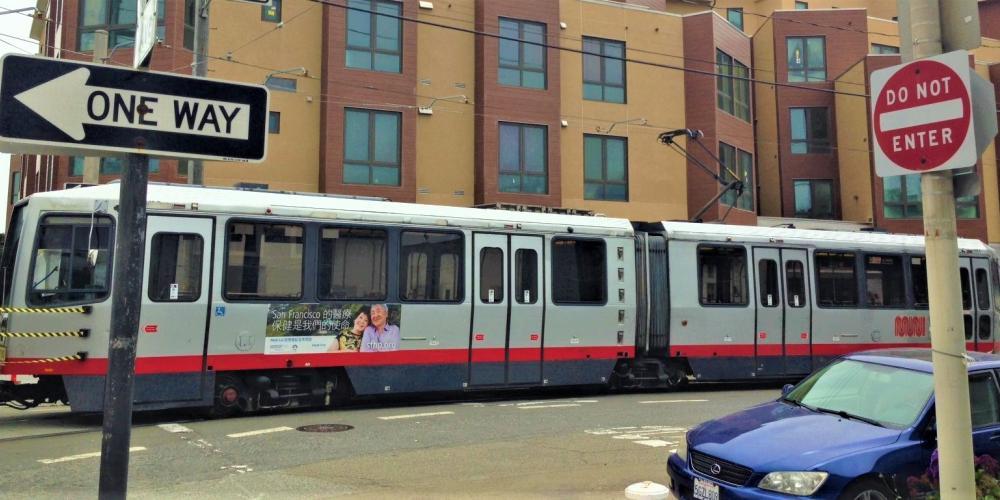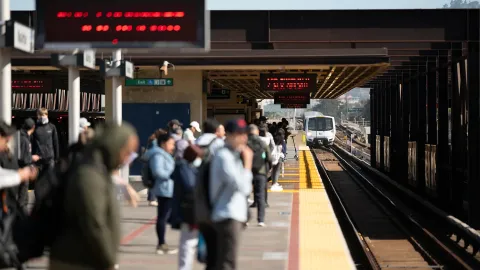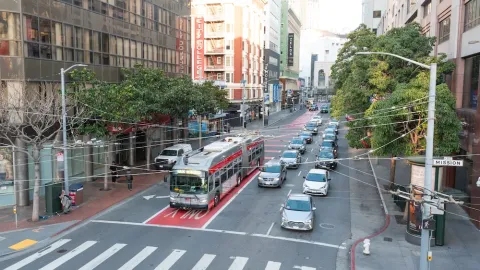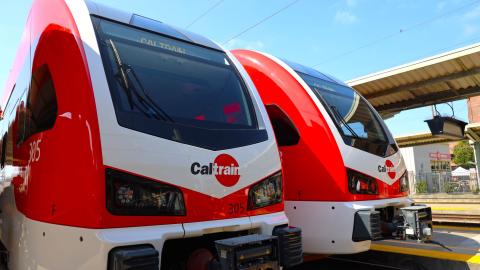
Caltrans will award more than $5.4 million in state and federal funds to a dozen Bay Area agencies to plan sustainable transportation projects that reduce greenhouse gas emissions, improve the state highway system and enhance access to safe walkways and bike paths.
Statewide, $34.7 million in grants will be distributed, including $25 million funded by Senate Bill (SB) 1, the Road Repair and Accountability Act of 2017. Caltrans awards transportation planning grants each year through a competitive process to encourage local and regional projects.
“By collaborating with local communities, we are working together to achieve both our climate goals and an equitable transportation infrastructure for people who rely on transit and intercity bus service,” said Steven Keck, Caltrans acting director, after the awards were announced last month.
Among the Bay Area awards, listed by grantee, project and grant amount:
Metropolitan Transportation Commission, Regional Occupancy Verification Technology Implementation Plan, $500,000: To create an implementation plan as well as planning and evaluating resources to assess and/or deploy passenger occupancy verification technology for state-owned Bay Area tolled bridge High Occupancy Vehicle lanes and Express Lanes. The study will be a partnership between MTC, other Bay Area Express Lane operating agencies and Caltrans. The study would specifically include analysis and guidelines regarding the equity, privacy and effectiveness issues raised by use of new technologies and include outreach to roadway users.
Metropolitan Transportation Commission, SFMTA Muni Metro Modernization Planning Study, $500,000: The Muni Metro Modernization Planning Study will identify infrastructure projects that provide critical capacity and reliability improvements for San Francisco’s Muni Metro light-rail network. The outcome of the study will be a package of projects to pursue that would be competitive for a Federal Transit Administration Core Capacity Grant, which could provide hundreds of millions of dollars to fund construction of identified projects.
City of Alameda, Oakland-Alameda Estuary Adaptation Project, $425,000: To develop a concept to protect both the downtown Oakland shoreline and the northern shoreline of Alameda's Marina Village area — including the Posey/Webster Tubes, which is Caltrans State Route 260 property, and the San Francisco Bay Trail — from expected sea level rise.
Menlo Park, Comprehensive Shuttle Program Evaluation, $153,000: To determine how the City of Menlo Park's shuttle system can be reconfigured, enhanced, or augmented to better serve the needs of the Belle Haven neighborhood, which is a disadvantaged community, and to serve substantial new growth in the adjacent Bayfront Area residential and employment district.
San Jose, North San Jose Multimodal Transportation Improvement Plan, $409,451: The North San Jose Multimodal Transportation Improvement Plan is a community-based plan for quick-build, near and long-term transportation improvements. Per the Metropolitan Transportation Commission’s Plan Bay Area 2050, NSJ is a Priority Development Area supporting the “focused growth” strategy to encourage infill development, job growth, and affordable housing near transit corridors.
San Jose, San Jose Decision Support System, $265,001: San Jose’s Decision Support System will provide the city with an integrated set of tools to manage and store projects and data, assess and monitor key performance indicators, and visualize the outputs for these indicators using graphs and mapping.
Sunnyvale, Improvements to Bike and Pedestrian Access at Sunnyvale Caltrain Station, $383,423: A study will identify bicycle and pedestrian access improvements in the vicinity of the Sunnyvale Caltrain Station. The improvements will include signage, bicycle and pedestrian access paths and curb ramps, and bicycle amenities such as bike lockers. The study will also identify possible public art displays and green infrastructure opportunities.
City/County Association of Governments of San Mateo County, Development of Vehicle Miles Traveled/Greenhouse Gas (VMT/GHG) Model Mitigation Program, $531,180: The project will establish tools for a CEQA compliant VMT/GHG Model Mitigation Program for use by C/CAG for regional transportation projects and, potentially, other countywide VMT/GHG mitigation projects that other lead agencies could invest in. The goal is to produce analysis and documents that are defendable, actionable, scalable, and replicable.
San Francisco Transportation Authority, Brotherhood Active Transportation and Open Space Plan, $641,812: This community driven planning process will develop concepts and conceptual designs for active transportation improvements that connect new recreational opportunities and housing near Lake Merced to the city’s core active transportation network and nearby regional transit. The study aligns with needs, goals, and community feedback heard through ConnectSF, San Francisco’s long range planning process and will help implement San Francisco’s Vision Zero road safety policy as well as the adopted regional strategy in Plan Bay Area 2050 to create healthy and safe streets.
Santa Clara Valley Transportation Authority (VTA), Equitable Vehicle Miles Traveled (VMT) Mitigation Program for Santa Clara County, $562,697: Community members will help identify a range of potential VMT-reducing measures, determine a framework to enhance equity through the program, and help inform the program structure and administration. This project helps implement Senate Bill 743, California Transportation Plan 2050, Plan Bay Area 2050, Valley Transportation Plan 2040, and local goals for housing production, sustainable development, and climate protection.
Sonoma County Transportation Authority (SCTA), Countywide Active Transportation Plan for Sonoma County, $525,000: The Countywide Plan will guide and prioritize expenditure of an estimated $3.1 million in annual revenues dedicated to bicycle and pedestrian facilities through Go Sonoma Act, plus other sources under the purview of SCTA. The plan will help advance and be consistent with regional and statewide plans including Sonoma Vision Zero Plan, Sonoma Climate Mobilization Strategy, Shift Sonoma County, the Metropolitan Transportation Commission's Active Transportation Plan and others.
Western Contra Costa Technical Advisory Committee, Richmond Parkway Environmental Justice and Regional Mobility Study, $562,650: Richmond Parkway is a major arterial linking Interstate-80 and Interstate-580 (Richmond-San Rafael Bridge), a major goods movement (truck and rail) and commuter corridor, a critical segment of the San Francisco Bay Trail and includes the Richmond Parkway Transit Center at its north end. This plan will continue and expand the prior community-focused process to evaluate and make recommendations via a health equity lens for improving bicycle and pedestrian infrastructure, transportation safety, transit access, public health, and air quality. The project advances the goals and priorities of the California Transportation Plan 2050, Caltrans District 4's Pedestrian and Bicycle Plans, and the region's Plan Bay Area 2050.



Submit your comment
In order to receive a reply to your comment, please provide an email address.